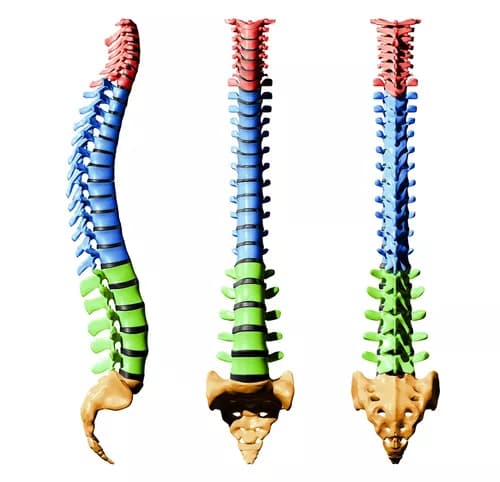
Spinal Cords Could Learn Movement on Their Own, Study Finds
A study by researchers at University of Montreal, SensoriMotor Rehabilitation Research Team, Montreal, École Polytechnique de Montréal, Montreal and INSERM/UPMC, Pitié-Salpêtrière Hospital, Paris, finds that the spinal cord engages in its own learning independent of the brain.
The spinal cord links the brain with the peripheral nervous system and has till recently been thought of as just that, a link. However, several recent studies with animal models have shown that spinal cord contributed to skill acquisition and that it was not a passive entity relaying information to muscles. It has been reported that the neurons in the spinal cord could be habituated and conditioned to learn and be sensitized, which induces a different capacity for learning.
That the spinal cord acquired changed during skill acquisition has been reported tough to prove, as it has been difficult to study the brain and spinal cord simultaneously using functional magnetic resonance imaging or an fMRI.
This challenge has been overcome in the current study, in which researchers used a 3.0T MRI scanner, which has a long-range field of view to include the brain and spinal cord. For this study, 35 participants, both men and women, were trained to accomplish certain tasks. All participants were right-handed and were required to perform complex tasks with their non-dominant left hand, without making too many mistakes. Their brains and spinal cords were analyzed simultaneously during the performance of these tasks using fMRI. The results showed that:
- When the participants were engaged in a complex “finger tapping” task, blood flow to the cervical spinal cord (the cervical spinal cord transmits the message from the brain to the muscles) as a function of learning was independent of blood flow changes in the brain.
- The spinal cord contributes distinctly and differently from the brain in the learning process.
- Over the course of learning a new task, dynamic change occurs in the brain-spinal cord interactions.
- The cervical spinal cord plays a critical role in a human’s ability to learn new motor skills.
The authors state that the findings “…open new avenues for rehabilitation of patients with spinal cord injuries, as they demonstrate that this part of the central nervous system is much more plastic than assumed before.”
Although the mechanisms conferring plasticity to the spinal cord needs to be studied further, this study has made significant contributions to the medical field by being able to study the blood flow to the brain and spinal cord simultaneously, and in the process, proving spinal cord plasticity.
Written by Mangala Sarkar Ph.D.
Primary Reference:
Vahdat, S., Lungu, O., Cohen-Adad, J., Marchand-Pauvert, V., Benali, H., & Doyon, J. (2015). Simultaneous Brain–Cervical Cord fMRI Reveals Intrinsic Spinal Cord Plasticity during Motor Sequence Learning. PLOS Biology. (n.d.). Retrieved July 5, 2015, from http://journals.plos.org/plosbiology/article?id=10.1371/journal.pbio.1002186
Additional References:
- Wang, Y., Pillai, S., Wolpaw, J., & Chen, X. (2006). Motor learning changes GABAergic terminals on spinal motoneurons in normal rats. European Journal of Neuroscience, 23(1), 141-150.
- Grau, J. (2014). Learning from the spinal cord: How the study of spinal cord plasticity informs our view of learning. Neurobiology of Learning and Memory, 108, 155-171.
Related Articles
Test Your Knowledge
Asked by users
Related Centers
Related Specialties
Related Physicians
Related Procedures
Related Resources
Join DoveHubs
and connect with fellow professionals

0 Comments
Please log in to post a comment.